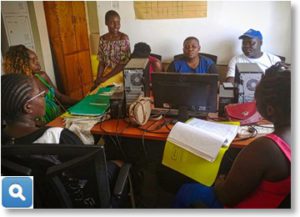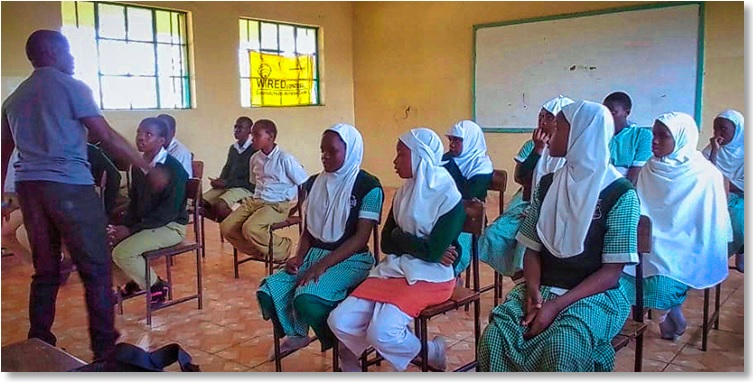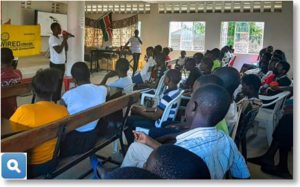August Update from WiRED’s Community Health Workers in Kenya
Paraprofessionals Advancing Local Health and Well-Being
By Allison Kozicharow; Edited by Elizabeth Fine
 WiRED International-trained community health workers (CHWs) confront a staggering number of health concerns during a single month — ranging from gender-based violence to pneumonia, heart disease, bipolar disorder, drug abuse and dengue fever.
WiRED International-trained community health workers (CHWs) confront a staggering number of health concerns during a single month — ranging from gender-based violence to pneumonia, heart disease, bipolar disorder, drug abuse and dengue fever.
This August report from Kisumu, Kenya, shows that 12 CHWs reached a total of 5,401 people with health services. This number is a slight decrease from July because the whole nation was caught up in the recent elections. Working 24 hours per week, each of the CHWs met with at least 48 patients a week, and the largest number seen by a single CHW was 211, most of them in health training classes.
Overall, the top health issues among many for the month of August were as follows, in order of prevalence:
WiRED training prepares CHWs as first responders who address hundreds of health concerns in their communities every month. Further, CHWs are required to participate in WiRED’s Continuing Medical Education (CME) Program — a vital key to elevating health in underserved communities. CHWs must take 45 CME credits each year to continue learning about local health topics, to stay current on new science and emerging diseases and to develop new skills to keep growing as a CHW paraprofessional.
A CHW Testimonial
In my community different people suffer from different diseases which they don’t understand. One woman came to me who had a sexually transmitted disease but was treating it as a urinary tract infection, hence not ending the problem. I educated her about the causes, prevention and treatment and advised her to go to the clinic with her partner for checkup and treatment. I also said for her and her partner to abstain from sex outside their relationship to avoid infecting other people and getting new infections. After getting treatment she became well and was very happy.
— CHW Liz Adhiambo
WiRED’s CME Program:
- Is designed for CHWs, nurses, rural physicians . . . anyone in health care who needs updates and wishes to expand his/her skills.
- Taps into WiRED’s of hundreds of modules.
- Features an app that can be used anywhere — developed by WiRED’s computer and content teams.
- Allows users via the app to download the modules to their smart devices, so they can study the material offline.
- Enables users to see “urgent” modules, which are posted for critical global health issues, such as COVID-19, Zika and Ebola. When users open the app, urgent modules will be red flagged for them.
- Keeps the credit score and reminds users how many credits they need to complete before the end of the year.
- Flags new modules to let users know about all recent additions to the WiRED e-library.
- Allows all modules to be accessed (downloaded) from the library.



